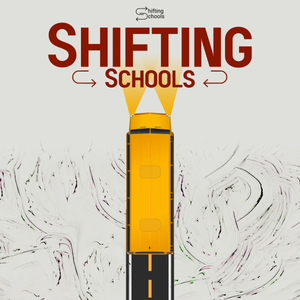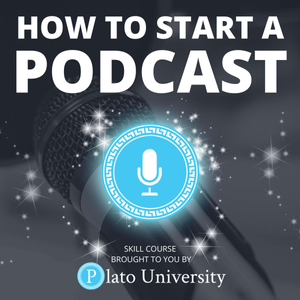
326: What it means to be a life-long learner in the new era of AI
02/19/24 • 46 min
On this week...
Dwight Gunning, a data scientist with a background in finance, discusses the role of artificial intelligence (AI) in the finance industry. He emphasizes the importance of technology in finance and the need for financial institutions to stay up to date with AI to protect against fraud and build trust. Dwight shares his personal journey from economist to technology enthusiast and highlights the value of lifelong learning. He encourages individuals to develop a diverse set of skills and mindsets to adapt to the changing world.
Learn more about Dwight Gunning:
Based in Canada with Jamaican heritage, Dwight Gunning is deeply invested in integrating advanced AI technologies within the finance sector. Boasting over twenty years of expertise in FinTech, he currently works as an AI and Machine Learning Assurance Engineer at FINRA. Additionally, Dwight is the maintainer of the popular edgartools project and co-author of a book on Natural Language Processing.
www.linkedin.com/in/dwight-gunning
dgunning.com
Thank you to our amazing show sponsor for supporting our podcast:
https://www.moneypickle.com/shiftingschools
Chapters
00:00 Introduction and the Role of AI in Finance 02:07 The Importance of Technology in Finance 04:19 Transition from Economist to Technology 06:14 The Joy of Lifelong Learning 09:58 Skills and Mindsets for Future Careers 11:34 Balancing Strengths and Developing Empathy 13:46 The Benefits of Competitions and Create-a-thons 17:58 Creating a Space for Open-Mindedness and Collaboration 19:28 The Impact of AI on Finance and Trust 21:28 The Storytelling Aspect of Finance and AI 23:22 The Intersection of Finance and Human Psychology 24:05 The Future of AI in Entertainment and Storytelling 28:51 The Importance of AI Literacy in Finance 29:51 The Exciting Future of AI and Natural Language Interaction 35:29 The Role of AI in Learning and Productivity 39:39 The Future of AI in Visual Storytelling 42:03 The Importance of Human-Centered Skills in the Age of AI
On this week...
Dwight Gunning, a data scientist with a background in finance, discusses the role of artificial intelligence (AI) in the finance industry. He emphasizes the importance of technology in finance and the need for financial institutions to stay up to date with AI to protect against fraud and build trust. Dwight shares his personal journey from economist to technology enthusiast and highlights the value of lifelong learning. He encourages individuals to develop a diverse set of skills and mindsets to adapt to the changing world.
Learn more about Dwight Gunning:
Based in Canada with Jamaican heritage, Dwight Gunning is deeply invested in integrating advanced AI technologies within the finance sector. Boasting over twenty years of expertise in FinTech, he currently works as an AI and Machine Learning Assurance Engineer at FINRA. Additionally, Dwight is the maintainer of the popular edgartools project and co-author of a book on Natural Language Processing.
www.linkedin.com/in/dwight-gunning
dgunning.com
Thank you to our amazing show sponsor for supporting our podcast:
https://www.moneypickle.com/shiftingschools
Chapters
00:00 Introduction and the Role of AI in Finance 02:07 The Importance of Technology in Finance 04:19 Transition from Economist to Technology 06:14 The Joy of Lifelong Learning 09:58 Skills and Mindsets for Future Careers 11:34 Balancing Strengths and Developing Empathy 13:46 The Benefits of Competitions and Create-a-thons 17:58 Creating a Space for Open-Mindedness and Collaboration 19:28 The Impact of AI on Finance and Trust 21:28 The Storytelling Aspect of Finance and AI 23:22 The Intersection of Finance and Human Psychology 24:05 The Future of AI in Entertainment and Storytelling 28:51 The Importance of AI Literacy in Finance 29:51 The Exciting Future of AI and Natural Language Interaction 35:29 The Role of AI in Learning and Productivity 39:39 The Future of AI in Visual Storytelling 42:03 The Importance of Human-Centered Skills in the Age of AI
Previous Episode

325: 'Lessons of the Pandemic': A Deep Dive into Teacher Experiences
The co-authors of the book 'Lessons of the Pandemic' discuss their research process, motivations, and recommendations for education. They emphasize the importance of teacher voice and perspective, as well as the need for a blended research approach using surveys, interviews, and focus groups. The chapters cover topics such as teacher workload, continuous innovation, recognizing teacher efforts, and the impact of social emotional learning on student well-being. The authors also provide advice for educators interested in conducting research and highlight the benefits of collaboration. Takeaways
- Teacher voice and perspective are crucial in understanding the experiences and needs of educators.
- A blended research approach, including surveys, interviews, and focus groups, provides a comprehensive understanding of the education landscape.
- School leaders should consider the impact of teacher workload and prioritize protecting planning time and limiting unnecessary meetings.
- Continuous innovation is essential in education, and educators should be open to change while school leaders should ensure changes are effective and supported by teachers.
- Teachers' efforts during the pandemic should be recognized and celebrated, and the lessons learned should be acknowledged and applied in future crises.
David Marshall is an associate professor of educational research in the College of Education at Auburn University. Since 2020, much of his research on the COVID-19 pandemic and its impact on K-12 education. Dr. Marshall has edited two books on the topic including "COVID-19 and the Classroom: How Schools Navigated the Great Disruption," one of the first books to share social science research documenting the first 15 months of the crisis. His research interests also include school choice and charter schools. Dr. Marshall's work has been published in leading journals of education research, policy, and practice. He taught middle and high school social studies in Philadelphia. Dr. Marshall worked for the Richmond Teacher Residency program in Richmond, Virginia in several capacities over a six-year span. He recently served two terms as chair of the Alabama Public Charter School Commission.
Tim Pressley is an associate professor of psychology at Christopher Newport University, where he is also a faculty member in the Master of Arts in Teaching program and the Center for Education Research and Policy. Before receiving his doctorate, Dr. Pressley was an elementary school teacher in Fort Worth, Texas. Currently his research focuses on teachers' lives, specifically on the impact COVID-19 has had on teachers, teacher effectiveness, and teacher burnout. His work has been published in leading education journals. Dr. Pressley is co-author of "Reading Instruction That Works (5th edition)". Giving teachers a voice on issues affecting their lives has been a driving force behind his research.
Connect with them on X: @marshalldavidt @tpress87
A huge thanks to our show sponsor!
Next Episode

Episode 327: How Can Educators Leverage AI for UDL?
LUDIA AI is a free tool that helps educators cultivate a Universal Design for Learning (UDL) mindset by leveraging AI. The conversation explores the fear and misconceptions around AI in education and how LUDIA AI actually emphasizes relationships and centers humanity. LUDIA AI is designed to support teachers' time and thinking, providing ideas and options to adapt instruction efficiently. Educators can use LUDIA AI to plan and model UDL best practices, considering barriers and opportunities. Tips are provided for getting the most out of LUDIA AI, including being specific in prompts and engaging in a back-and-forth conversation. Anecdotes and feedback from educators highlight the varied uses and benefits of LUDIA AI. The conversation also discusses the importance of involving parents and caretakers in using AI tools like LUDIA AI to support homeschool partnerships and expand AI use beyond the classroom. The 4Ts model (Tell, Tinker, Tweak, Transfer) is introduced as a process for using LUDIA AI effectively. AI is seen as a tool for metacognition and decision-making, enhancing critical thinking and creativity. Listeners are encouraged to experiment with LUDIA AI and explore its potential in their educational contexts.
Ready to learn more?
https://bit.ly/LUDIA_Bookshelf
Ready to connect with Beth and Jeremie?
https://www.linkedin.com/in/bstarklifelonglearner
https://www.jeremierostan.com/
Chapters
00:00 Introduction to LUDIA AI and UDL Mindset 01:15 Addressing Fear and Misconceptions about AI in Education 02:25 LUDIA AI as a Tool to Support Teachers' Time and Thinking 03:39 Using LUDIA AI to Plan and Model UDL Best Practices 06:01 Tips for Getting the Most Out of LUDIA AI 08:50 Anecdotes and Feedback from Educators Using LUDIA AI 11:48 Involving Parents and Caretakers in Using LUDIA AI 14:18 Expanding the Use of AI Beyond the Classroom 16:53 Using LUDIA AI for Homeschool Partnerships 18:13 The 4Ts Model for Using LUDIA AI Effectively 20:55 AI as a Tool for Metacognition and Decision-Making 23:45 Experimenting with LUDIA AI: One Thing to Try 24:24 Closing Remarks and Future of LUDIA AI
Thank you to our show sponsor!
If you like this episode you’ll love
Episode Comments
Featured in these lists
Generate a badge
Get a badge for your website that links back to this episode
<a href="https://goodpods.com/podcasts/shifting-schools-conversations-for-k12-educators-25399/326-what-it-means-to-be-a-life-long-learner-in-the-new-era-of-ai-45081686"> <img src="https://storage.googleapis.com/goodpods-images-bucket/badges/generic-badge-1.svg" alt="listen to 326: what it means to be a life-long learner in the new era of ai on goodpods" style="width: 225px" /> </a>
Copy





